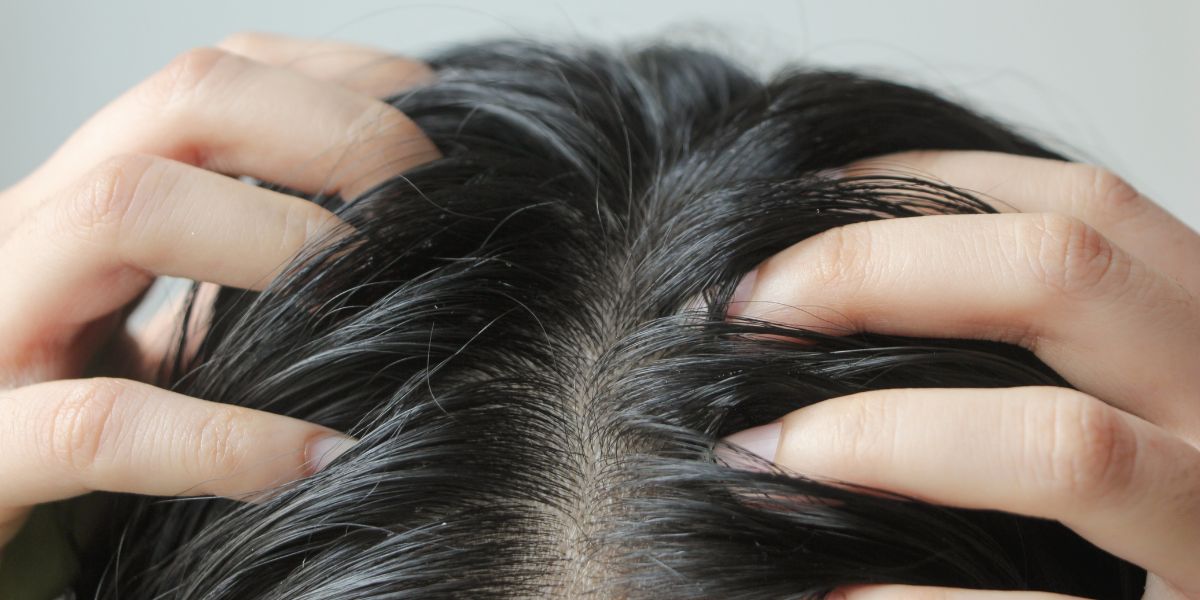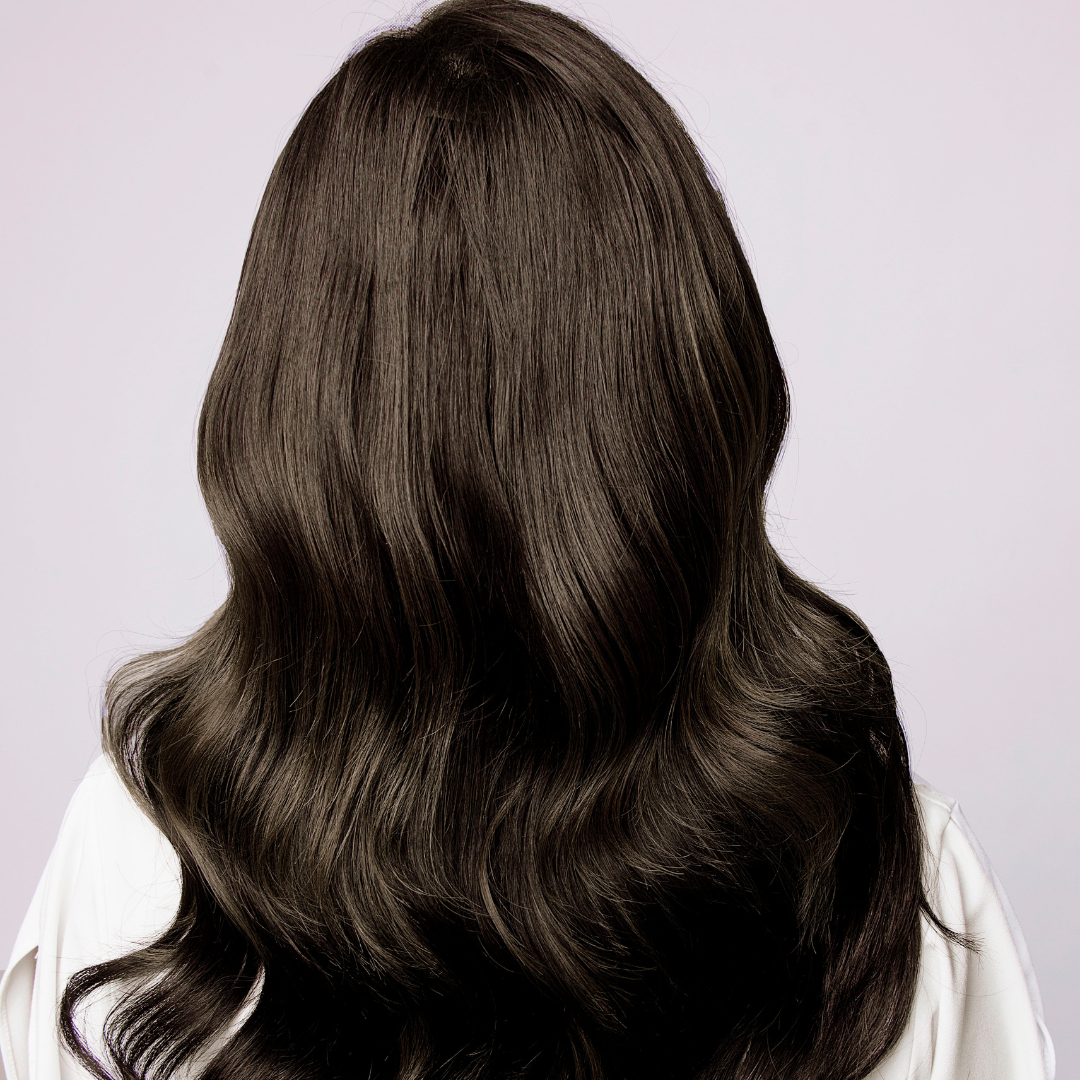Are you experiencing hair fall, dandruff, or an itchy scalp?
Your scalp health plays a crucial role in the condition of your hair. A healthy scalp provides a conducive environment for hair growth and helps to maintain luscious locks. Conversely, an unhealthy scalp can lead to various hair and scalp issues. Therefore, it's essential to determine the health of your scalp to take appropriate steps to maintain it. In this blog, we will discuss how to determine your scalp health and the signs that indicate whether your scalp is healthy or not.
Your scalp is the skin on your head that contains hair follicles, sebaceous glands, and sweat glands. It's essential to keep your scalp clean and well-nourished to support healthy hair growth. Here are some ways to determine your scalp health:
Observe Your Scalp
Take a close look at your scalp. A healthy scalp should have a consistent color without any redness, inflammation, or visible blood vessels. It should also be free from any sores, bumps, or lesions. If you notice any of these signs, it could indicate an unhealthy scalp. Redness, itching, and tenderness are common symptoms of scalp inflammation, which may be caused by conditions like dermatitis or psoriasis. In such cases, it's important to consult a dermatologist for proper diagnosis and treatment.
Check for Excessive Dryness or Oiliness
The natural balance of sebum (an oily substance produced by the sebaceous glands) on the scalp is crucial for maintaining scalp health. Too much or too little sebum can cause problems. If your scalp feels excessively dry and tight, it could indicate a lack of sebum production, leading to dryness, flaking, and dandruff. On the other hand, if your scalp feels greasy and oily even shortly after washing, it could indicate overactive sebaceous glands, which may result in an oily scalp, clogged follicles, and dandruff. Both dryness and oiliness can affect the health of your scalp and hair. If you notice such issues, you may need to adjust your hair care routine or use appropriate products to balance the sebum production on your scalp.
Assess Your Scalp's pH Balance
The pH balance of your scalp plays a crucial role in determining its health. The pH scale ranges from 0 to 14, with 7 being neutral. A pH level below 7 is considered acidic, while a pH level above 7 is considered alkaline. The ideal pH balance of the scalp is slightly acidic, ranging between 4.5 and 5.5, which helps to maintain the natural protective barrier of the scalp and hair.
To assess your scalp's pH balance, you can use a pH testing strip or consult a dermatologist. If your scalp's pH is too acidic or alkaline, it can disrupt the natural balance and cause various scalp issues. For instance, an overly acidic scalp can result in dryness, itching, and dandruff, while an overly alkaline scalp can lead to greasiness, inflammation, and product buildup. Using pH-balanced hair care products and maintaining a healthy diet can help restore and maintain the optimal pH balance of your scalp.
Pay Attention to Your Scalp's Sensitivity
The sensitivity of your scalp can also indicate its health. A healthy scalp should not be overly sensitive or painful to touch. If you experience pain, discomfort, or sensitivity when you touch your scalp, it could be a sign of an unhealthy scalp. Scalp sensitivity can be caused by various factors, such as inflammation, allergies, or an irritated scalp. It's important to identify the underlying cause and take appropriate measures to soothe and heal your scalp. Avoiding harsh hair care products, reducing mechanical stress on the scalp (such as tight hairstyles or aggressive brushing), and using gentle scalp care products can help alleviate scalp sensitivity and promote a healthier scalp.
Assess Your Scalp's Hair Growth
The quality and quantity of hair growth on your scalp can also be an indicator of its health. A healthy scalp provides a favorable environment for hair growth, resulting in thick, lustrous hair. On the other hand, an unhealthy scalp can lead to thinning hair, hair loss, or stunted hair growth.
Pay attention to the rate and pattern of your hair growth. If you notice excessive hair fall, patchy hair loss, or changes in your hair's texture and thickness, it could indicate an underlying scalp issue. Conditions like alopecia areata, hormonal imbalances, or nutritional deficiencies can affect hair growth and require proper diagnosis and treatment by a dermatologist or a healthcare professional.
Consider the Presence of Dandruff or Flaky Scalp
Dandruff is a common scalp issue that can affect the health of your scalp. It is characterized by flaking of the scalp skin, which can be dry or oily, and may be accompanied by itching and redness. Dandruff is often caused by a fungal infection or an overactive sebaceous gland, and it can affect both the scalp and the hair.
If you notice excessive dandruff or flaking on your scalp, it could indicate an imbalance in the scalp's microbiome or an overproduction of sebum. Using anti-dandruff shampoos or other scalp treatments containing active ingredients like ketoconazole, salicylic acid, or tea tree oil can help control dandruff and promote a healthier scalp.
Check for Scalp Odor
An unpleasant odor coming from your scalp can be a sign of an unhealthy scalp. A healthy scalp should not have any noticeable odor. However, if you notice a persistent foul smell from your scalp, it could indicate an overgrowth of bacteria or yeast on the scalp, which can lead to scalp odor.
Scalp odor can be caused by factors like poor hygiene, excessive sweating, or an overactive sebaceous gland. Using a gentle, pH-balanced shampoo, avoiding heavy hair care products, and practicing good scalp hygiene, such as regular washing and thorough rinsing, can help combat scalp odor and maintain a fresh-smelling scalp.
Consider Your Overall Health and Lifestyle
Your overall health and lifestyle can also affect the health of your scalp. Factors such as diet, stress levels, sleep patterns, and general well-being can have an impact on your scalp health. A balanced diet rich in essential nutrients like vitamins, minerals, and proteins can promote scalp health and hair growth. Managing stress through relaxation techniques like meditation, getting enough sleep, and leading a healthy lifestyle can also positively influence your scalp health.
In addition, certain lifestyle habits, such as frequent use of heat styling tools, exposure to environmental pollutants, or excessive use of hair care products, can also affect your scalp health. It's important to be mindful of these factors and take steps to minimize their impact on your scalp health.
Tips to maintain a healthy scalp
To maintain a healthy scalp, it's important to follow a gentle hair care routine, use pH-balanced hair care products, avoid harsh chemicals, and practice good scalp hygiene. Here are some key takeaways to help you determine your scalp health:
- Observe your scalp for any signs of dryness or oiliness, such as flaking, redness, or excessive sebum production.
- Assess your scalp's pH balance by using a pH-balanced shampoo or testing the pH of your scalp using pH testing strips.
- Pay attention to any sensitivity or discomfort on your scalp, which could indicate inflammation or irritation.
- Monitor your hair growth for any changes in texture, thickness, or excessive hair fall, which could indicate an underlying scalp issue.
- Check for dandruff or flaky scalp, which could indicate an imbalance in the scalp's microbiome or an overproduction of sebum.
- Consider the presence of scalp odor, which could indicate an overgrowth of bacteria or yeast on the scalp.
- Evaluate your overall health and lifestyle, as factors like diet, stress levels, sleep patterns, and lifestyle habits can impact your scalp health.
By taking these steps and being proactive in assessing and maintaining your scalp health, you can promote healthy hair growth, prevent scalp issues, and maintain a healthy scalp.
Remember, if you notice any persistent issues with your scalp, it's important to seek professional advice from a dermatologist or healthcare professional for proper diagnosis and treatment. Taking care of your scalp is essential for overall hair health and can contribute to maintaining luscious, beautiful hair. Incorporate good scalp care practices into your hair care routine to ensure a healthy scalp and gorgeous hair.




